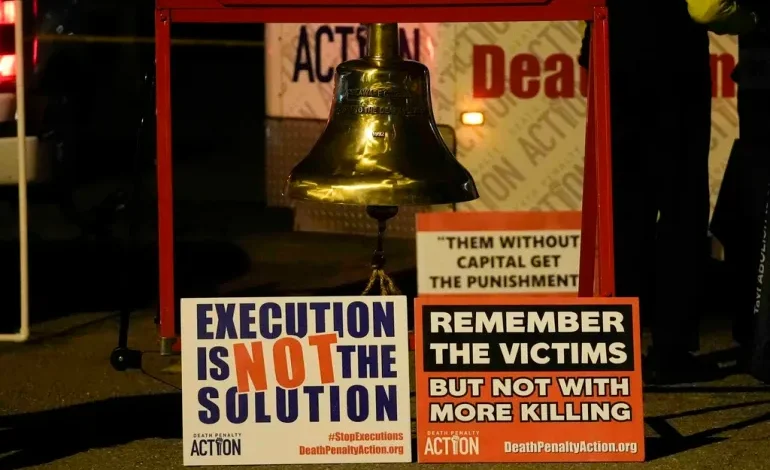Tennessee’s highest court has ruled that the state can push forward with the execution of Byron Black, a death row inmate with an implanted defibrillator, despite warnings from his legal team that the device could trigger a gruesome and prolonged death.
Black, convicted of a triple murder in 1988, is scheduled to die by lethal injection on August 5, after decades of appeals and multiple delays. But his lawyers had argued that executing him with the defibrillator still active could cause his heart to be repeatedly shocked during the process, prolonging his death and violating his constitutional protection against “cruel and unusual punishment”.
In July, Davidson County Chancery Court Judge Russell Perkins had agreed with the defense, ruling that the device would need to be removed before the execution could legally proceed.
On Thursday, however, the Tennessee Supreme Court overturned that decision, saying that forcing the removal of the defibrillator amounted to a de facto stay of execution, something the lower court had no authority to order.
The justices essentially cleared the way for the state to proceed with the lethal injection as planned, leaving lingering questions about how the defibrillator could impact the process.
Kelley Henry, one of Black’s attorneys, said she is “looking at the opinion before making a decision about next steps,” hinting that the legal fight may not be over yet.
Lawyers for the state had previously argued that medical professionals were unwilling to deactivate or remove the device because doing so would mean participating in the execution, something many see as a violation of medical ethics.
The court’s ruling sidestepped the broader issue: whether possible complications caused by the defibrillator could lead to a botched execution, violating Black’s constitutional rights. It also left open the possibility that he could still secure a last-minute reprieve.
The case shines yet another harsh spotlight on the United States’ troubled death penalty system. While most Western nations have abolished capital punishment, the US still carries it out, often with disturbing results.
A 2022 Death Penalty Information Center (DPIC) report found that nearly a third of attempted executions in the US that year were “visibly problematic,” marked by executioner mistakes, faulty protocols, or mechanical failures in lethal injection setups.
Amnesty International says the US executed 24 people in 2023, ranking third globally after Iran and Saudi Arabia. The country also handed down the fifth-highest number of new death sentences worldwide.
Public support for the death penalty has been steadily eroding. A 2024 Gallup poll showed 53% of Americans still favor it, but that’s near historic lows, down sharply from its 1990s peak.
With input from Al Jazeera










The latest news in your social feeds
Subscribe to our social media platforms to stay tuned